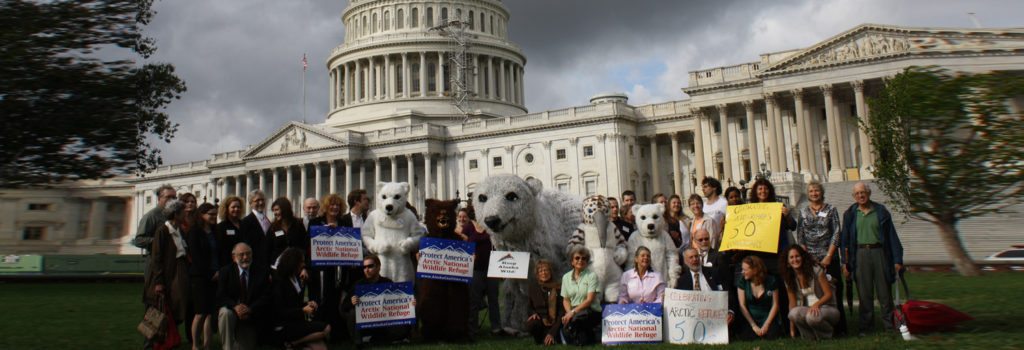2022 Midterm Election Results and Implications for Wild Alaska

The 2022 midterm elections were on November 8th, and while votes are still being counted in select races, it presently appears that Republicans will take control the House of Representatives and the Senate will remain in Democratic hands. There was no so-called “red wave” of Republican midterm victories, and with 55 new members of Congress we have an exciting opportunity to shape Congress’ views on protecting the Arctic National Wildlife Refuge, National Petroleum Reserve-Alaska, Tongass National Forest, and other habitats key to wildlife and a healthy climate.
While we await the official results for Mary Peltola’s race in Alaska, we anticipate for her to win as the first Alaska Native elected to Congress. During the next session, we hope to work closely and have education meetings with her as she joins the House Natural Resources Committee.
Newly elected members of the Senate and House are soon expected to be in Washington for orientation and will participate in leadership elections for both chambers. Kevin McCarthy (R-CA-23) was elected as the Republican nominee for Speaker of the House.
There is still a lot of unfinished work to do for the current 117th Congress who returned for a lame duck session on November 14th.
The biggest outstanding item is funding the federal government when the current continuing resolution (CR) expires on December 16th. To avert a government shutdown (or partial shutdown), Congress will either need to broker a deal on the 12 annual appropriations bills or pass another CR to fund all (or some) of the 12 titles at current levels. This can be done either with a short-term continuing resolution (CR), or a larger Omnibus appropriations package that will fund the government through FY23.
What does this mean for wild Alaska?
For the Arctic National Wildlife Refuge, corporate accountability is a winning tactic independent of who controls the halls of Congress. While legislation is ultimately needed to repeal the Refuge leasing program passed with the 2017 Tax Act, relentless pressure on banks, insurance companies and oil companies to say NO to Refuge drilling has paid off. As of this fall, every major bank in the U.S. and Canada, and 18 other international banks, have pledged not to finance drilling in the Refuge, and 17 international insurers won’t underwrite Refuge drilling. In addition to those, U.S. insurer AIG recently implemented a policy that ruled out any new Arctic energy exploration.
To protect important wild lands in the National Petroleum Reserve-Alaska (Reserve), we continue to push hard at the administrative level and elevate opposition to ConocoPhillips’ proposed Willow oil drilling project until the final decision is announced, anticipated before the end of the year. We continue to use the lame duck session to put pressure on the Biden administration to reject Willow and choose the no action alternative. Going forward, we aim to increase lawmaker awareness about the Reserve’s climate and habitat values, especially with newer members.
The League remains vigilant in tracking Senator Manchin’s (D-WV) efforts to pass the Permitting Reform bill which would silence communities and put polluters over people. And, we will continue to track Republican-led legislation around domestic oil production on public lands, as the House will likely prioritize drilling and target Alaska.
Written by Priya Uppuluri, Alaska Wilderness League’s Legislative Associate
